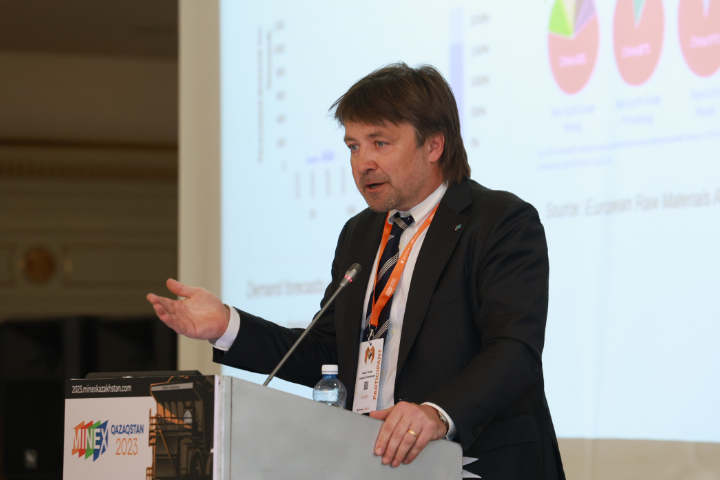The European Union (EU) has promised to support Kazakhstan in the development and processing of rare earth and other critical metals. The commitment was made during the MINEX Qazaqstan mining forum, where the EU’s strategic partnership with Kazakhstan for the sustainable production of raw materials, batteries, and hydrogen chains was discussed. The European Commission spokesperson, Robert Thomas, mentioned the EU’s strategic partnership with Kazakhstan for the sustainable production of raw materials, batteries, and hydrogen chains.
The strategic partnership agreement between Kazakhstan and the EU was signed on 7 November 2022, focusing on the sustainable production of raw materials, batteries, and hydrogen chains. The countries are required to develop a partnership roadmap within six months.
Europe continues to work towards establishing a sustainable supply of critical raw materials, including rare earth metals, for its industries. The European Commission recently introduced a package of legislative amendments to stimulate the supply of such materials. The demand for these materials is driven by various sectors, including renewable energy, aerospace, defence, and the military-industrial complex. The article mentions Europe’s support for Ukraine in terms of weapons and ammunition supply, highlighting the importance of raw material supply for defence purposes.
To reduce dependence on a single country, particularly China, Europe aims to diversify its sources of raw materials. The European Commission aims to ensure that by 2030, no more than 60% of strategically important raw materials come from a single country. Europe’s increasing demand for new fuels and related materials, driven by its commitment to carbon neutrality by 2050, further intensifies the competition for these resources.
Kazakhstan plays a significant role in supplying certain critical metals to Europe. For example, it covers 71% of Europe’s phosphorus needs, which is used in the production of lithium-ion batteries, explosives, and incendiary compositions. Additionally, Kazakhstan supplies 36% of Europe’s titanium needs, which is used in the production of civil and military aircraft and tanks.
The Vice Minister of Foreign Affairs of Kazakhstan, Almas Aidarov, mentioned that the country will consider greater state participation in the exploration of rare earth metals. He emphasized the importance of having a comprehensive understanding of these deposits to attract foreign investors. Aidarov also proposed expediting the return of licenses for unused deposits and ensuring that they are operated by companies committed to exploration and development.





